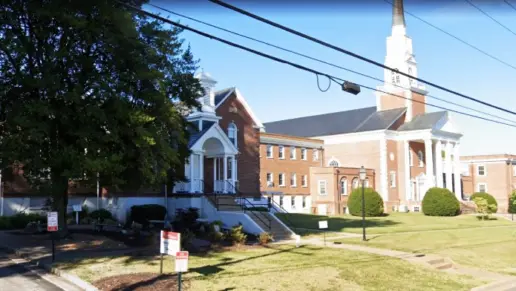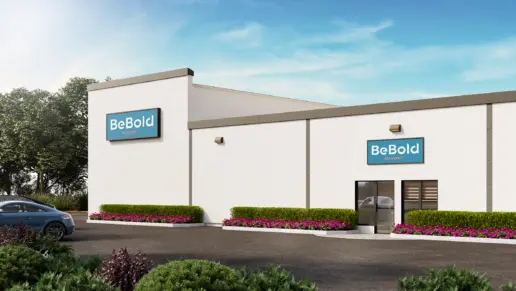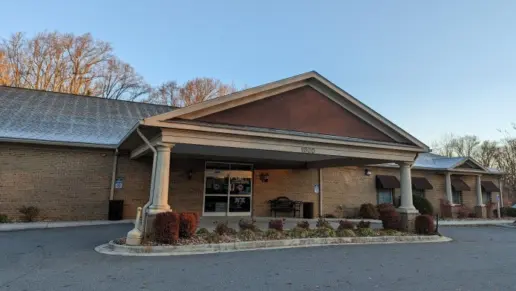About Albemarle Counseling
Albemarle Counseling is a behavioral health facility located in a quiet corner of suburban Charlottesville, Virginia. They treat people for substance use disorder and alcohol use disorder. They also treat people who have both a mental health condition and addiction struggles.
They take insurance and self-pay. All sessions are offered over telehealth and you must sign a telehealth agreement before receiving therapy. They’ll provide you with an evaluation to determine the best course of therapy for you. However, you should know that this is not a medical clinic, and they do not provide psychiatric testing.
You will have individual therapy sessions with John Penn Turner, a certified counselor. Mr. Turner has extensive experience in treating substance use disorder that dates back to the 1990s. He began his career working with impatient clients with addiction issues. He is also licensed as a substance abuse treatment practitioner. He is certified as an ADS Acu-Detox Specialist.
Turner is certified in several different types of treatment, including the Braddock Body Process. You will be taught tai chi movements and breathing exercises. The exercises will teach you about physical and emotional balance and finding your inner core. That way, you can clear your mind and relax when stress hits.
Turner is also certified in accelerated resolution therapy, or ACT. This type of treatment aims to change the way traumatic memories are stored in your brain. The therapist guides you to remember positive images when thinking of the traumatic event. You will choose the positive images yourself. This can be done in a single session.
You’ll sign a therapy agreement when you sign up for treatment. You must agree to be open and honest about your thoughts and feelings during therapy. You must also agree to refrain from contacting the staff via social media.
Other Forms of Payment
Self-pay involves paying for treatment out of your own pocket. You can use savings or credit, get a personal loan, or receive help from family and friends to fund your treatment. If you don't have insurance or your insurance plan doesn't cover a specific program, self-pay can help ensure you still get the care you need.
Addiction Treatments
Levels of Care
Treatments
The goal of treatment for alcoholism is abstinence. Those with poor social support, poor motivation, or psychiatric disorders tend to relapse within a few years of treatment. For these people, success is measured by longer periods of abstinence, reduced use of alcohol, better health, and improved social functioning. Recovery and Maintenance are usually based on 12 step programs and AA meetings.
When you enroll in drug rehab in Virginia, a treatment plan is designed by professional staff in order to help you overcome drug addiction and modify addictive behaviors. This may include evidence-based treatments, group and individual therapy, and relapse prevention.
A combined mental health and substance abuse rehab has the staff and resources available to handle individuals with both mental health and substance abuse issues. It can be challenging to determine where a specific symptom stems from (a mental health issue or an issue related to substance abuse), so mental health and substance abuse professionals are helpful in detangling symptoms and keeping treatment on track.
Opioid rehabs specialize in supporting those recovering from opioid addiction. They treat those suffering from addiction to illegal opioids like heroin, as well as prescription drugs like oxycodone. These centers typically combine both physical as well as mental and emotional support to help stop addiction. Physical support often includes medical detox and subsequent medical support (including medication), and mental support includes in-depth therapy to address the underlying causes of addiction.
Programs


Clinical Services
Whether a marriage or other committed relationship, an intimate partnership is one of the most important aspects of a person's life. Drug and alcohol addiction affects both members of a couple in deep and meaningful ways, as does rehab and recovery. Couples therapy and other couples-focused treatment programs are significant parts of exploring triggers of addiction, as well as learning how to build healthy patterns to support ongoing sobriety.
EMDR is a therapeutic modality originally developed to help process trauma. In an EMDR session, a patient is prompted to undergo eye movements that mimic those of REM sleep. This is accomplished by watching a therapist's finger move back and forth across, or following a bar of light. The goal is repetitive sets of eye movements that help the brain reprocess memory, which can significantly reduce the intensity of remembered traumatic incidents. Associated memories can heal simultaneously, leaving patients significantly calmer, more stable, and more emotionally relaxed.
In individual therapy, a patient meets one-on-one with a trained psychologist or counselor. Therapy is a pivotal part of effective substance abuse treatment, as it often covers root causes of addiction, including challenges faced by the patient in their social, family, and work/school life.
Amenities
-
Residential Setting
-
Private Setting
Contact Information
106 Caty Lane
Charlottesville, VA 22901


